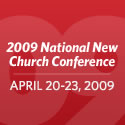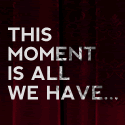
Flickering Pixels: Is Online Community Real?
Orginally published on Thursday, April 09, 2009 at 6:30 AM
by Todd Rhoades
I'm in the process of reading the new book by Shane Hipps called "Flickering Pixels: How Technology Shapes Your Faith. It is a great read and very challenging. I've often said that I enjoy reading articles and books that stretch my thinking and broaden my horizons a little. This book does. Shane is a former advertising executive. It was his job to, as he puts it, "hijack our imagination, brand our brain with his logo, and feed us opinions that we thought were our own". Shane presents an interesting case that you can't really separate the medium from it's message. If that's true, it has significant ramifications for today's church.
One part of the book that interested me was Shane's take on social media and the internet. Shane writes, "I find it troubling that so many communities of faith are in hot pursuit of these new technologies. The internet is seen as the Holy Grail of "building community". However, churches will find the unintended consequences of this medium coming back to bite them..."
Shane continues:
“The internet is a lot of things, but it is emphatically NOT a neutral aid. Digital social networking inoculates people in real social networks—networks like a church or a meal at someone’s home. Being together becomes nice but nonessential.
Our addiction to virtual community is understandable. The convenience factor is just too high. We love the efficiency of our interactions; they allow us to be in touch more often. However, there is a big difference between being “in touch” and truly connecting with others...”
I agree and disagree. Obviously, twittering back and forth with someone is not the same as meeting with them over coffee. And blogging a post or leaving a comment is not the same as having a discussion.
But those of us who have seen significant in-person relationships result out of first meeting on-line would seem to push back a little. I have met well over a hundred people in-person that I first connected with on-line. Some are mere acquaintances; some have turned into good friendships.
To those thousands who have met their spouse on-line, I would imagine that they would also say that real, meaningful relationships are possible over the internet.
That said, there is a tendency to use social networking as a crutch. It is easier and quicker than the face-to-face conversation. However, I find that most of my on-line connections are with people who share my interests and passions, but are not in my local community. So, in that regard, it does not either encourage or discourage personal, face-to-face interaction.
I do use social networking, to a much lesser extent, in my local relationships… with friends and people at church mostly. I can say that for me personally, social networking (blogging, twitter, and facebook in my situation) has not at all cut down on any face-to-face time I would have with these people. Rather, it has enhanced the relationship by sharing short things through the week; and has many times strengthened the relationship because we’re able to share day-to-day details of our lives with each other.
Regardless of what you feel about social networking… pick up a copy of Shane’s new book here. I think you’ll find it challenging and enjoyable.
Here’s an interview with Shane by Rob Bell:
What do you think? How does social network affect your local relationships? Is your church embracing social networking? In your opinion, is this a good thing or a bad thing?
Todd
![]()
This post has been viewed 432 times so far.
There are 5 Comments:

Hi... I'm Todd Rhoades. I'm a Christ-follower, husband, father and I love to connect leaders with other leaders. Hopefully you'll find something here at MMI you like and will return often. If you want, you can find out more about me or follow my every step on Twitter.
![]()







-
Posted by
Monday, April 13, 2009 at 7:46 AM
-
Posted by
Monday, April 13, 2009 at 7:50 AM
-
Posted by
Monday, April 13, 2009 at 10:38 AM
-
Posted by
Wednesday, April 29, 2009 at 6:59 PM
-
Posted by Digital Printing Vancouver
Thursday, April 30, 2009 at 4:23 AM
Post Your Comments:Not sure I agree with all this - I agree we personally are the most important medium, but what exactly is he saying about the digital medium? The H.S. regenerates, but I think the medium just colors our understanding. Have not read his book, though. BTW, I got saved by reading a book by Spurgeon - THAT medium seems to be OK , since I’ve never talked to Spurgeon personally. Rob kinda burned him at the end, although I think he was just trying to joke around.
After thinking about it - really - how are books different than social networking? (Other than no third party editor)
I’m almost finished with Flickering Pixels. To be be fair I have several chapters left to read. My problem is that to sell a book you have to push the limits and go to the edges. This leads to either/or binary thinking which bothers me.
What I find interesting is, that if the medium is the message, why did Hipps write a book? The written word removes the message from the messenger.
I was amused that when he talked about resolving conflict and living in community, he used as an example the Mennonnite document Agreeing and Disagreeing in Love. If the medium is the message, why does he use a print document as an example?
His bias leeks out at times. “Protestant Christianity is a by-product of a single medium-the printed Bible. How disconcerting to have a faith yoked so closely to a medium that is now in the dusk of its life as we currently know it.”
Maybe Hipps is disconcerted but I’m not. He makes many good points in his book. There are things we need to be aware of with emerging media. And we do need to use caution and discernment. I just don’t agree with many of his ascertations (many of which are not referrenced or footnoted). I personally found Miller’s Millennium Matrix a better read.
i think it will be hard for christians to understand Hipps message as indicated by the above comments.
he is not against any medium, just that we must be aware that they are not neutral and all of them have a dark side that we must be aware of. adding Jesus to a medium doesnt take away this dark side.
and yes, there are plenty of differences between a book and social networking. they sould be obvious.
What a blog filled with vital and important information this is .. It must have taken a lot of hours for you to write these yourself. Hats off from me for your hard work.
Page 1 of 1 pages